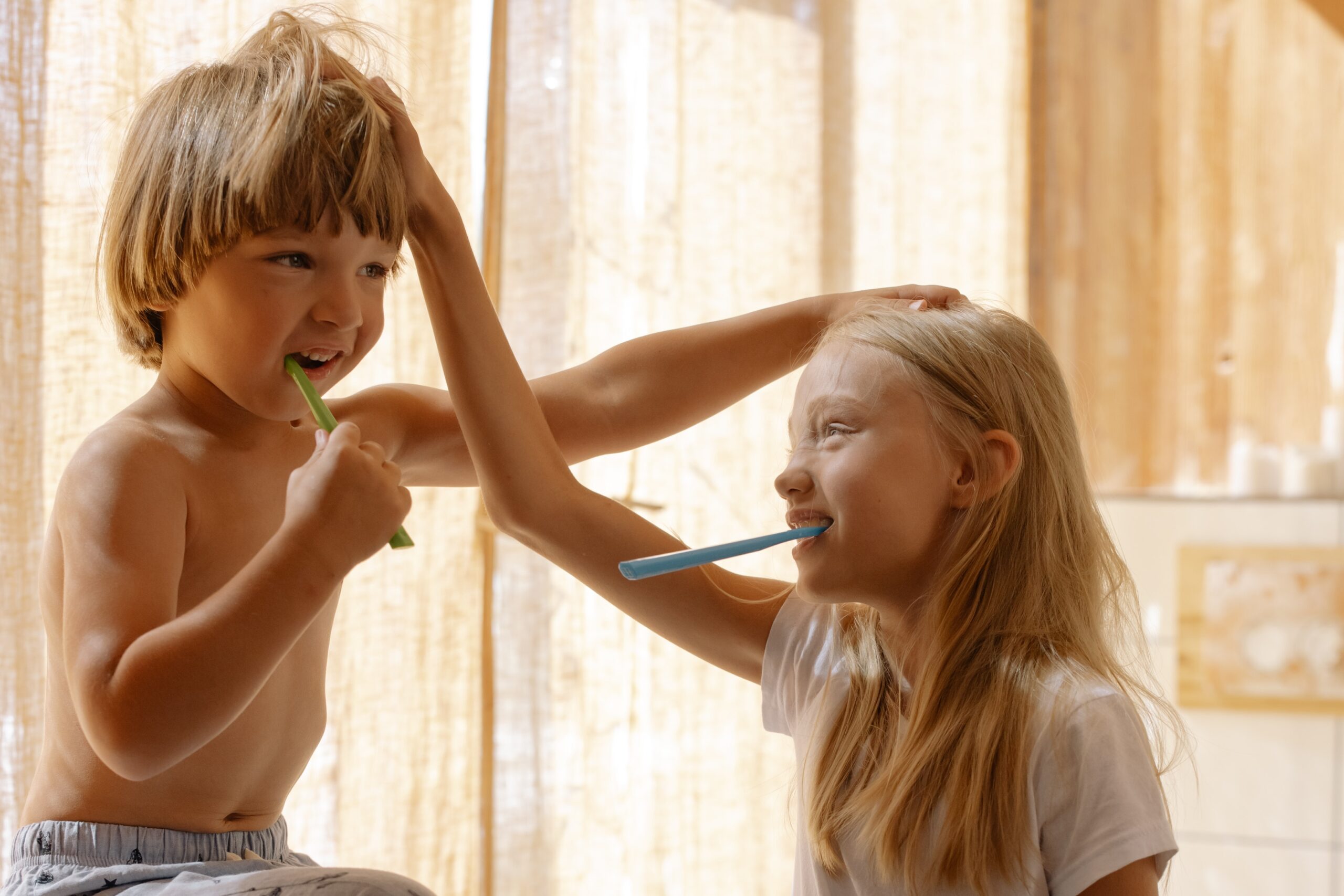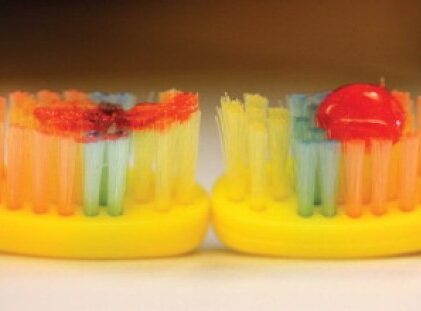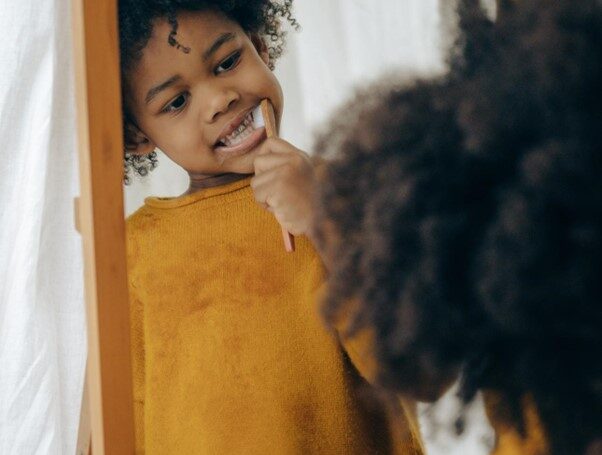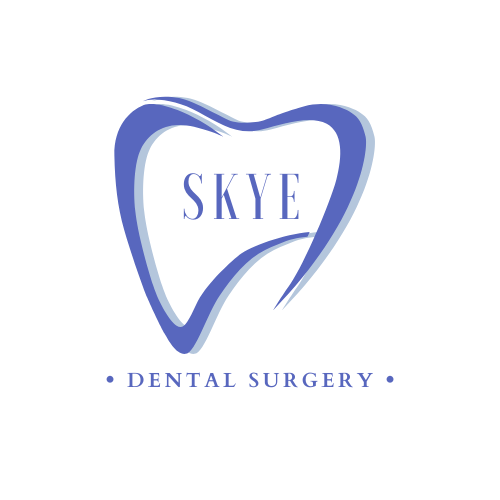
It was once a misconception that fluoride toothpaste is harmful to children. Especially if the kids are below two, they are usually incapable of rinsing and spitting. As a result, parents are more fond of non-fluoride toothpaste. However, fluoride is essential for both baby and adult teeth. It acts as a protective shield from bacteria attacks and will constantly remineralise the outer layer of our teeth.
A long-term effect of lack of fluoride will cause teeth to be more fragile and increase the caries rate. In most countries which, include Malaysia, drinking water is fluoridated. The water supply in most states of Malaysia was added with minimal fluoride. In other words, a certain amount is still consumed by your baby subconsciously. The fear of ingestion an overdose of fluoride toothpaste can be managed by controlling the amount used.
Therefore, switching to fluoridated toothpaste regardless of your kid’s age is advisable for healthier baby teeth. According to The Journal of American Dental Association (JADA) recommendation:
- For children from 2 to 6 years ~ use a pea-sized amount of fluoride toothpaste (approximately 0.25 g toothpaste or 0.25 mg fluoride)
- For children below 2 ~ use a “smear” of fluoride toothpaste (approximately 0.1 gram of toothpaste or 0.1 milligram of fluoride)

Myth 2: Cavities in baby teeth do not matter
This is based on the idea that since these teeth will eventually fall out, what happens to them beforehand doesn’t matter. Unfortunately, cavities can cause a handful of
problems. Cavities will gradually cause pain and even affect their eating or sleep.
If untreated or treatment is given too late, the bacteria might spread and damage the nerve inside the root. A proper treatment will be more complicated and need much more cooperation from the child. So, it is always better to focus on prevention rather than fixing them later.
Myth 3: Baby sleeps better when bottle feed till asleep
Undoubtedly, bottle feeding to sleep is the most suitable way to put kids in bed. However, this is a significant contributing factor to cavities. Some parents claim their kids had brushes before bed, but if milk is given after brushing, that’s in vain.
The remnant from the pooling milk on the teeth will become acidic and cause cavities. This is commonly referred to as milk bottle caries.
During the day, our saliva flows are more active and will constantly help flush away the sugar residual that sticks to the teeth. Also, the composition of saliva will help to remineralise our teeth. However, during the night, saliva flows are reduced, which puts the teeth at a higher risk of decay.
When brushing is impossible after feeding from a bottle, parents should consider using a wet towel to remove the residual milk to minimise the risk of decay.
Myth 4: Baby teeth fall out sooner or later
We might naturally expect baby teeth will eventually fall out anyway. But it’s not rare to see cases where some children have congenital missing permanent teeth. This condition is referred to as hypodontia, meaning, for some reason, the child has some absent teeth. Since there is no successor, the baby teeth usually will not resorb and fall out.
They will just stay in the mouth and act as a replacement for the permanent teeth. However, if the baby’s teeth were not well cared for, a more complicated treatment plan might be required.
Therefore, keeping all baby teeth healthy and free from cavities is essential.

Myth 5: Kids don’t need to see a dentist until there is a problem
Unfortunately, many parents usually don’t take their child to the dentist until there is a problem. So, by the time a kid is brought in, often, there is a lot to be done. As a result, insufficient time for the kid to get used to the dental setting and the lengthy procedures usually will lead to a very disheartening experience for every party.
It is suggested that parents bring their children for a first dental visit as early as their first birthday or when the first tooth erupts, even though everything seems fine. It
is important to acclimatise the child towards a dental setting and establish a trusting relationship with the dentist.
During the first visit, the focus of a dentist should be more on introducing the dental setting and letting a child enjoys the dental visit. If further treatment is needed, it is always better to schedule another separate appointment.
Conclusion
Don't fall for these common myths about baby teeth! Contracy to popular belief, babt teeth are important and tooth decay in baby teeth can lead to serious consequences.
While sugar contributes to cavities, it's not the only culprit. Remember to brush your baby teeth as it's crucial for good oral health.
By debunking these myths and promoting good oral hygiene habits, parents and caregivers can help ensure their child's baby teeth stay health and set them up for alifetime of good oral health.
Consult us today if you need expert advice from our experienced dentist in Penang.

